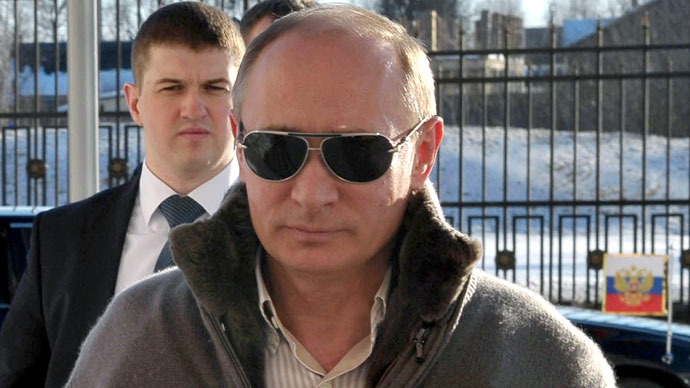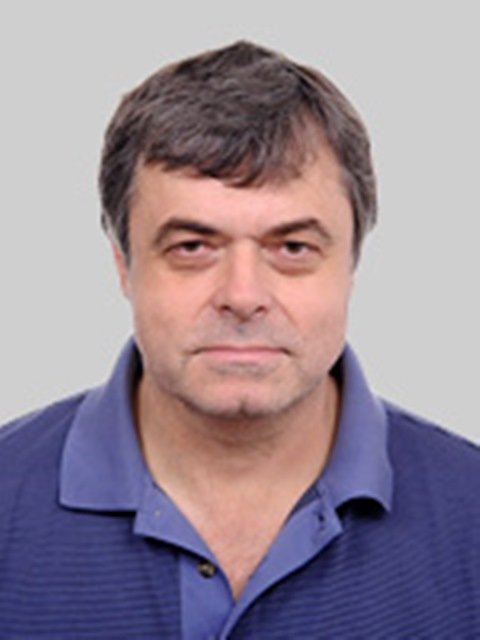Putin 60

Back in the Kremlin, Russia’s President Vladimir Putin is marking his 60th birthday on October 7, basking in ...
Back in the Kremlin, Russia’s President Vladimir Putin is marking his 60th birthday on October 7, basking in publicity, nourishing his tough-guy image and showing he is in full control of the country – inherited 12 years back from his senile and deeply unpopular predecessor, the first Russian President Boris Yeltsin – to “restore law and order.”
After Putin’s comfortable win in the March presidential poll, giving him another six years in office, analysts are trying to unravel his main riddle: how long can Russia’s strongman hold on to power?
The other hotly-debated issue is whether the nation and the world will see the new version of Putin, labeled “Putin 2.0” after the eight years of his presidency from 2000 to 2008 and the last four years, in which Putin served as prime minister in a so-called leadership tandem with President Medvedev.
Looking back at the first six months of his new presidency, one will come to a basic conclusion: the initial expectations of Putin 2.0, voiced by some disenchanted Russian liberals and intellectuals on the eve of Putin’s May 7 inauguration, didn’t come true in the field in which the change was probably anticipated most of all – domestic politics.
One of the most telling examples was the recent law labeling foreign-funded nonprofit organizations as “foreign agents”. Refuting criticism on the new law, seen as a new crackdown on Russian NGO’s, Putin said that by adopting the law Russia, just like the US, wanted to protect itself from external influence.
Explaining his reason for more government scrutiny of Russian NGO’s, he hinted that under his presidency Russia will tolerate no outside meddling in its internal affairs.
“If foreigners pay for political activity, apparently they are expecting to get some result from that,” explained Putin.
In another development, showing he is not in a hurry to adopt a new liberal image of Putin 2.0, Russia’s strongman ordered the closure of the USAID office in Russia after concluding it provided funds for non-government organizations that seek to "influence the political process, including elections at various levels and civil society," to quote Russia’s Foreign Ministry spokesman Aleksandr Lukashevich.
However, there is a sphere, were the changes are more evident: foreign politics. The geography of President Putin’s first overseas trips indicated what might be the style of Russia’s new foreign policy and its priorities. To the big surprise and sheer disappointment of President Obama, the first country visited by Putin, was not America, but Belarus – an ex-Soviet republic crippled by Western sanctions and denounced both by Washington and Brussels as the “last European autocracy.”
In making Minsk his first trip abroad Putin was not just snubbing the United States. He sent a tough message that he didn’t intend for the Kremlin to take lectures from anyone, analysts say.
While deciding to skip the G8 summit at Camp David, Putin attended the summit of Shanghai Cooperation Organization (SCO) in Beijing. SCO summit was followed by APEC summit in Vladivostok, held September 6-9, which finally shaped new Russia’s foreign policy doctrine with Asia-Pacific region made its top priority.
“The voices of those, who say partnership with the West is of critical importance to Russian modernization, are not heard today. What we hear are the loud voices that our future is with China and the Asia-Pacific region,” explains Dmitry Trenin, director of the Moscow Carnegie Center.
No surprise then, that the first 100 days of his presidency and the follow-up events brought Vladimir Putin, who was grimly warning opposition of “rocking the boat”, no major trouble. There is no development in sight which can mar Putin’s 60th birthday the way his May inauguration ceremony was clouded by a 100,000-strong anti-Putin violent protest, staged at Moscow’s Bolotnaya Square.
The most recent anti-Putin nationwide protest, staged September 15 – three weeks before his birthday – while called the March of Millions revealed that the street opposition, which had made the Kremlin nervous in recent months, finds itself in bad shape. The dwindling numbers of the protestors – this time nearly 20,000 at most – and squabbling opposition leaders made Putin and his staunch supporters from the United Russia party sigh with relief.
According to the opinion polls, revealed by VTSIOM Russia’s leading rating agency this September, Putin’s performance is currently approved by 51.4 per cent of Russian citizens.
“Moreover, he is largely seen not as just a president, but as a father of the nation,” says VTSIOM General Director Valery Fyodorov.
Meanwhile, with new painful reforms introduced this autumn, price hikes for communal services being one of them, the concept of Putin’s “welfare state” could be put in jeopardy. The other potentially destabilizing factor is the split within Russia’s political and business elite, unable to agree on a coherent development strategy. The latest evidence of that is the saga of the last week: the controversy over Russia’s 2013-2015 federal budget.
So, all in all, it is hardly appropriate to speak of Putin 2.0, as it is more and more often seen as another Western cliché to label a leader who is rated second in Forbes magazine list of the most influential world politicians – after US President Obama.
However, anyone who is fond of catchwords may easily speak of “Putin 60”: not a former top Soviet apparatchik, like Gorbachev and Yeltsin, but a self-made politician, who skyrocketed from political limbo to the helm of Russia’s power and is showing no signs of decay.
Sergey Strokan, for RT
The statements, views and opinions expressed in this column are solely those of the author and do not necessarily represent those of RT.
The statements, views and opinions expressed in this column are solely those of the author and do not necessarily represent those of RT.













